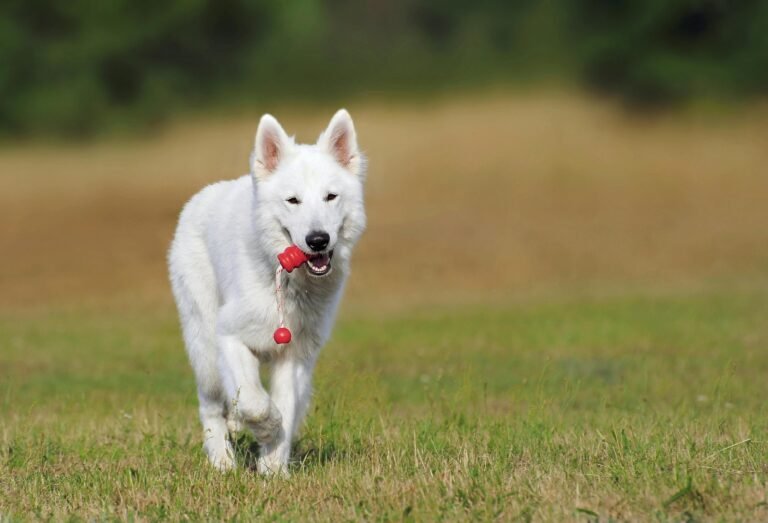Teething is a natural, albeit challenging, phase in your puppy’s life. It’s marked by chewing, drooling, and sometimes a bit of chaos around the house. While teething can be tough on both puppies and their owners, the good news is there are plenty of remedies and strategies to make the process smoother.
This post may contain affiliate links. By purchasing through these links, you help support Just Paw Facts. Thank you for your support!

Understanding the Teething Process
Timeline of Puppy Teething Stages
- 2-4 Weeks: Puppies start developing baby teeth.
- 3-4 Months: Baby teeth fall out as adult teeth emerge.
- 6-8 Months: Teething typically ends with all adult teeth in place.
Why Puppies Chew During Teething
Chewing helps puppies soothe their sore gums and relieve discomfort. It’s also their way of exploring the world.
The Challenges of Teething
- Pain and Discomfort: Teething causes swollen gums, which can make your puppy irritable.
- Destructive Chewing Habits: Your puppy might gnaw on anything in sight—shoes, furniture, or even your fingers!
Safe and Effective Remedies
- Frozen Treats and Toys: Cold items like frozen carrots or a chilled teething toy can numb sore gums and provide relief.
- Specialized Teething Toys: Invest in puppy-safe teething toys made of soft, durable materials. Brands like KONG offer excellent options. Buy the KONG Puppy Binkie Chew Toy
Homemade Solutions for Teething Relief
- DIY Frozen Washcloth: Soak a clean washcloth in water, twist it, and freeze it. Your puppy will love chewing on it.
- Ice Cubes or Frozen Vegetables: Simple and safe, these provide a fun, cold treat that soothes gums.
Promoting Positive Chewing Habits
- Redirecting to Appropriate Items: When your puppy chews something inappropriate, calmly redirect them to a safe toy or treat.
- Positive Reinforcement Techniques: Praise your puppy when they chew on approved items. Consistent reinforcement encourages good habits.
Foods to Ease Teething Pain
Safe Frozen Snacks for Puppies
Frozen blueberries, apple slices (seedless), and plain yogurt cubes are great options.
Benefits of Chilled Carrots
Carrots are not only nutritious but also soothing for sore gums when chilled.
Products to Avoid During Teething
- Unsafe Chew Toys and Materials: Avoid hard bones or toys that can crack teeth. Steer clear of anything brittle.
- Toxic Foods to Keep Away: Chocolate, onions, and grapes are harmful to puppies and should never be offered.
Using Teething Gels: Yes or No?
While some gels claim to relieve pain, not all are safe for puppies. Consult your vet before use. Also opt for natural remedies like frozen treats over chemical solutions.
Minimizing Damage to Your Home
- Puppy-Proofing Your Space: Remove shoes, cords, and small objects from reach.
- Preventing Furniture Damage: Use bitter sprays on furniture to deter chewing and keep items out of reach.
Engaging Your Puppy’s Mind
- Interactive Toys for Distraction: Puzzle toys and treat dispensers keep your puppy entertained and away from destructive chewing.
- Mental Stimulation to Reduce Chewing: Teaching basic commands or tricks can divert their energy into productive activities.
Vet-Recommended Tips
- When to Consult a Vet: If your puppy seems overly distressed or has difficulty eating, it’s time to see the vet.
- Managing Excessive Discomfort: Your vet can recommend safe pain management options if needed.
Building a Routine
- Establishing Consistent Habits: Stick to a daily schedule for playtime, feeding, and chew sessions.
- Scheduling Play and Chew Sessions: Frequent play helps tire out your puppy and reduces teething-related mischief.
Helping Puppies Transition
- Recognizing the End of Teething: Once teething is over, chewing should decrease, but it’s essential to maintain positive habits.
- Maintaining Good Oral Habits: Introduce tooth brushing early to ensure lifelong dental health.
Conclusion
Teething may be a challenging phase, but with patience and preparation, you can support your puppy through it. By providing safe remedies, promoting good habits, and offering plenty of love, you’ll both get through this stage with minimal stress.
FAQs
- How long does puppy teething last?
Puppy teething typically lasts from 3 to 8 months. - What can I give my teething puppy to chew on?
Safe options include teething toys, frozen carrots, or a frozen washcloth. - Can I use human teething gel on my puppy?
No, human teething gels may contain toxic ingredients for dogs. Always consult your vet. - How do I stop my puppy from chewing on furniture?
Use bitter sprays, provide alternatives like toys, and redirect their behavior consistently. - When should I see a vet about teething?
If your puppy is in excessive pain, refuses to eat, or shows abnormal behavior, consult a vet.




